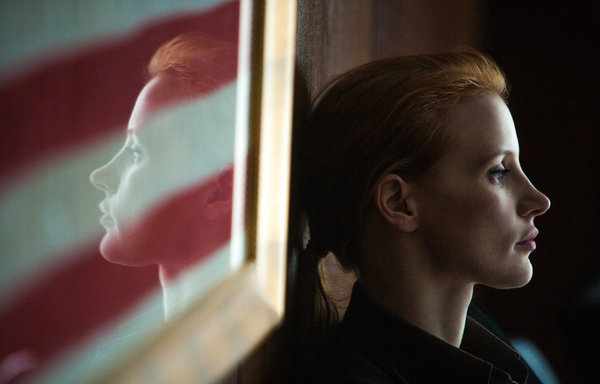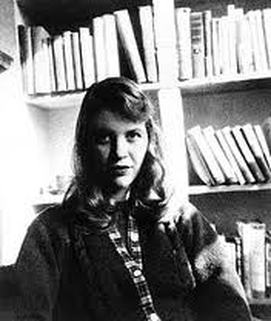Dir. Kathryn Bigalow
Two films in one here: the first involves agents of the United States trampling over the United Nations Declaration of Human Rights through torturing detainees, the second, Uncle Sam again, this time invading sovereign territory to carry out an execution. In between times we see real footage of Barack Obama banishing water boarding torture and promising to restore America’s moral authority.
A partial view? Maybe. Several times the audience is reminded that these practices are adopted because three thousand innocent civilians were killed in the Twin Towers attack of nine eleven and a number of other atrocities have continued to take place in London, Islamabad and elsewhere; so millions of dollars and a decade’s work were committed to find the perpetrator. Anyone who has presided over playground fights will be familiar with the justification, they started it but less often cited is Ghandi’s assertion cited: “An eye for an eye turns the whole world blind.”
In war, what actions are justifiable? I write this on the seventieth anniversary of the bombing of Dresden and after listening on the radio to a British eye witness to the bombings unequivocally condemning both the motive and the objective of the operation.
None of my first three paragraphs constitute a film review of course unless it was Kathryn Bigelow’s intention to invite audiences to follow such lines of thought. This may well be the case as this is a brutally honest and courageous film. It neither supports the use of torture nor glorifies the so-called War on Terror. The torture scenes are thoroughly degrading for all concerned and although it is true that a vital piece of information is gleaned which leads to the location of Osama Bin Laden, this has to be set against the mountain of information gained which cannot be relied or acted upon. As one frustrated agent says, “We don’t know what we don’t know.”
Likewise, there are no heroics involved in the depiction of the operation to assassinate Bin Laden. It is a methodical, thoroughly professional action where technology is deployed to locate and kill the architect of the mission to kill those three thousand. We are taken on the helicopter night flight through the mountains, we see images through the night vision lenses used by the soldiers and, if the audience I attended with is anything to go by, we are gripped. Or is it revulsion we experience?
The mission is accomplished. This is no spoiler as we all know the story, but we may not have been aware of the killing of other family members or the horror visited upon the children in the house. The human cost is high on both sides: I have supped too full with horrors. Mia, the CIA agent, so convincingly played by Jessica Chastain is dehumanised; she has to overcome her natural distaste for the treatment of the torture victim and she later leads her own abuse of a detainee. In another scene she admits to a female colleague that she doesn’t have a boyfriend and the supplementary question of do you have any friends at all? is left unanswered.
Don’t go to see this film looking for adrenalin charged adventure or jingoistic marauding. Both sides in the War on Terror are deluded. Think rather of the opinion delivered to Gulliver in Brobdingag:
“I cannot but conclude the bulk of your natives to be the most pernicious race of little odious vermin that nature ever suffered to crawl upon the surface of the earth.”
Think how little cause over the intervening years Swift would have had to revise that opinion and then weep for humanity.



 RSS Feed
RSS Feed
